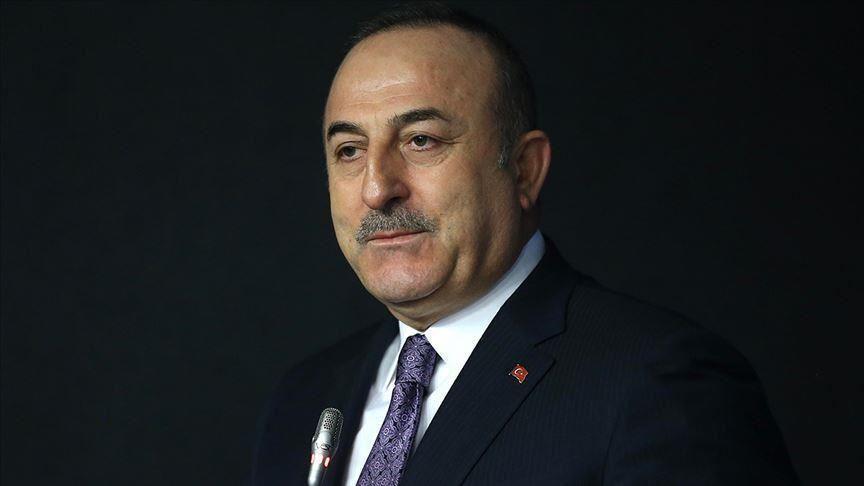
Turkey’s foreign minister urged the international community on April 14 to aid Syrians amid diminishing relief efforts because of the coronavirus pandemic.
Speaking at a virtual conference by the Atlantic Council in Turkey and Turkish Heritage Organization, Mevlüt Çavuşoğlu said Turkey is the main source of aid and the pandemic is making efforts "more difficult" in Syria.
"We are concerned that this might trigger another wave of refugees to Turkey due to the international community's failure," said Çavuşoğlu.
"[The] international community must act before it is too late for Syria and Idlib."
He singled out Idlib, which has become a scene of a brutal campaign by the Bashar al-Assad regime and its allies, saying the province desperately needs more foreign assistance and a solid global plan "which we don't have right now."
Turkish President Recep Tayyip Erdoğan and his Russian counterpart Vladimir Putin agreed March 5 on a new cease-fire in Idlib in an effort to end hostilities and attacks on civilians.
Nearly 1.5 million Syrians are on Turkey’s doorstep, according to the top diplomat.
"We need actually concrete and timely and unconditional support from our allies," he said.
According to running data by U.S-based Johns Hopkins University, Syria has at least 29 coronavirus cases and two deaths as of April 14, but human rights activists warn the virus could sweep conflict-hit areas.
In late March, UN aid chief Mark Lowcock said the first confirmed cases of COVID-19 infection in Syria are just the “tip of the iceberg” of an outbreak that could have a “devastating impact” on the war-ravaged country.
Turkish FM knocks UNSC for 'late' response to COVID-19
Çavuşoğlu also criticized the U.N. Security Council for being late to respond to the coronavirus pandemic that has infected nearly 2 million people worldwide.
"Everybody agrees that the Security Council has been late to respond to the COVID-19. They met to discuss the pandemic almost four months after the outbreak," he said.
"This is unbelievable, outrageous," said the top diplomat.